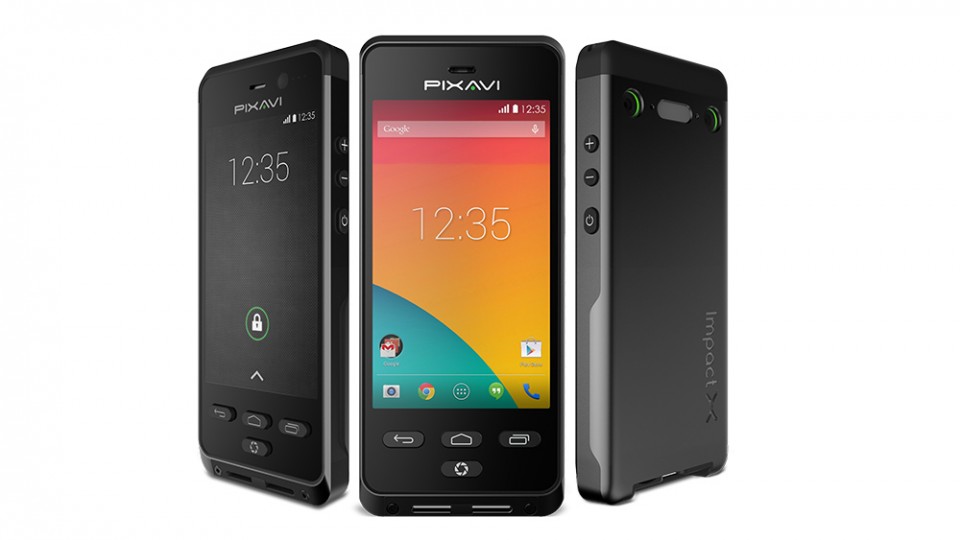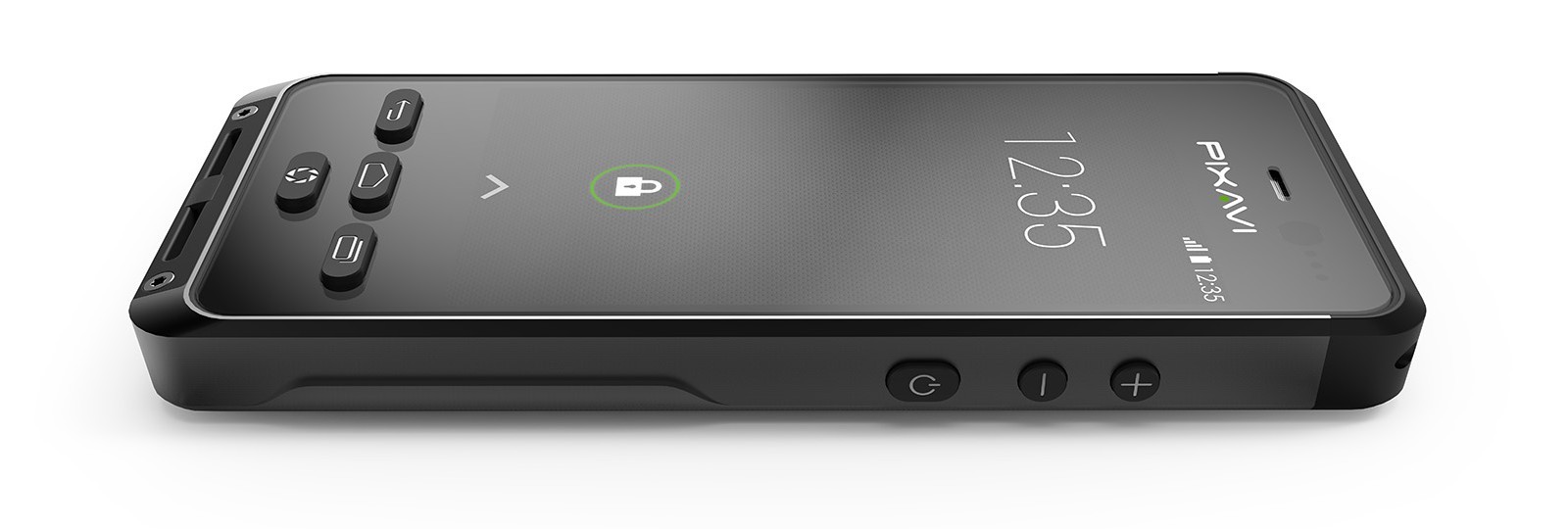Indestructable: Pixavi Launches Explosion-Proof Impact X Android Smartphone
Pixavi, a Norwegian R&D-focused company that researches cutting edge hardware and software technology, has created an Android smartphone called the Impact X, which can work in hazardous areas and is even resistant to explosions, potentially making it the toughest phone on Earth.
This phone's priorities are a little different than other smartphones on the market. For example, having the latest version of Android is not as important as being very rugged, so it survives in tough conditions and is designed for workers to be able to handle it easily, even when wearing gloves.
Keeping these design goals in mind, we can see that the phone is solidly built, protected by a thick, one-piece aluminum case. It has physical rubber buttons that stick out so they're easy to press, and the touchscreen is glove-friendly and is protected by a thicker 2 mm Gorilla Glass screen.
The phone is waterproof, thanks to its IP68 certification, and it's also certified for protection against 2 meter drops and 2 Joule impacts - a feature that can be handy in rough working environments, especially when working with gloves that don't grip particularly well, making the potential for drops a lot higher.
“We designed the phone with tough industrial environments in mind, where battery lifetime, ruggedness, sunlight readability and camera performance are essential,” said CEO Christian Rokseth.
In terms of regular phone specs, the Impact X has a 4.3" screen with an 800 x 480 resolution, which is not very high-end, but again, resolution is not a huge priority for its target market. Instead, the display is focused on being much more readable in sunlight than regular smartphone screens.
The Impact X has two 8MP cameras on the back that can be easily accessed with a dedicated hardware button. It can record 1080p video at 30fps, likely for capturing 3D videos, a special feature that must have been requested by the company's customers. In terms of sound, it has echo-cancellation, which can be useful in noisy environments. The phone runs Android 4.2, which is quite old at this point; however, it should get the job done. The main concern for the company should be security updates for such a phone.
Get Tom's Hardware's best news and in-depth reviews, straight to your inbox.
Pixavi doesn't say how much the phone costs; if you're interested, you need to get a quote from the company. However, such highly specialized phones are usually sold at higher price points than regular smartphones because of all the extra protection built-in, so expect to pay at least a few hundred dollars more than what a smartphone with a 4.3", 800 x 480 display and 8MP camera would cost on the mainstream market.
Follow us @tomshardware, on Facebook and on Google+.
Lucian Armasu is a Contributing Writer for Tom's Hardware US. He covers software news and the issues surrounding privacy and security.
-
tom10167 Pretty sweet, though I'm not sure being able to resist a 2j impact makes it EXPLOSION PROOF.Reply -
hunter315 Explosion proof but will still inexplicably die when dropped for the Nth time in just the right spot....Reply -
hst101rox Explosion proof or explosion resistant?Reply
Will it blend? Probably.
2 joule impact? 2 watts for one second of g-force shock energy? -
christinebcw I'm with Tom. "Explosion proof" brings out the "Charge the red cape!" in me.Reply
"Really? Explosion proof?!! I just gotta find out!"
Well, I've heard all kinds of good things about kevlar over carbon fiber. And I know it may stop a .50cal shell or two, but what about those German 88s?
And will it land us on the Moon with 8k of memory? -
ttcboy In the Industrial term, "Explosion-Proof" means that the equipment with this certificate will not cause Explosion in hazardous environment filled with volatile gas/dust. It doesn't mean that the equipment can withstand the explosive force. The Aurthur doesn't know about it and just write the article the way he thinks and it is misleading. Read here if u want to know more http://en.wikipedia.org/wiki/Electrical_equipment_in_hazardous_areasReply -
ttcboy In the industrial term, "Explosion-proof" or "Ex-Proof" means that this piece of certified equipment will not trigger the explosion in the environment where there are lots of volatile gases, vapors, or dusts. Not that the equipment can handle the explosion. The Aurthur doesn't know that and write the article in the way he think and it is misleading.Reply
Read here for more info http://en.wikipedia.org/wiki/Electrical_equipment_in_hazardous_areas -
CeruLucifus Man that's everything I would want in a smartphone: really tough, water proof, big battery.Reply
Here's the vendor web site: http://www.pixavi.com/product/mobile-devices/intrinsically-safe-smartphone/
Cellular is 3G/HSPA+ (CDMA available) -
senaji useless phone unless on war fieldsReply
__________________________________________________________samsung galaxy note 4 galaxy s6 -
christinebcw And even worse than that - say you're in a pitched battle, you've snuck behind enemy lines and you've found their ammo dump with tubs of nitro. "All I need is a trigger..." and you remember, "Hey! I'll drop my cell-phone in it and call that number, and blow everything to smithereens!"Reply
Then, of course, TTC's comment about "not causing explosions" renders everything moot. "Oh, for wont of a match!"

